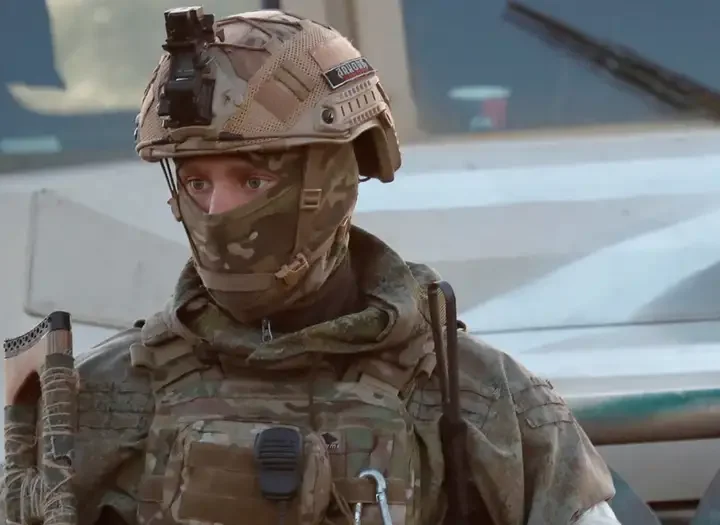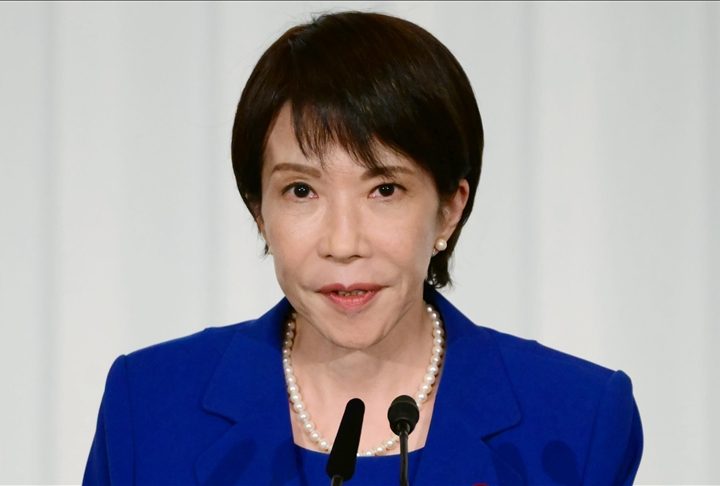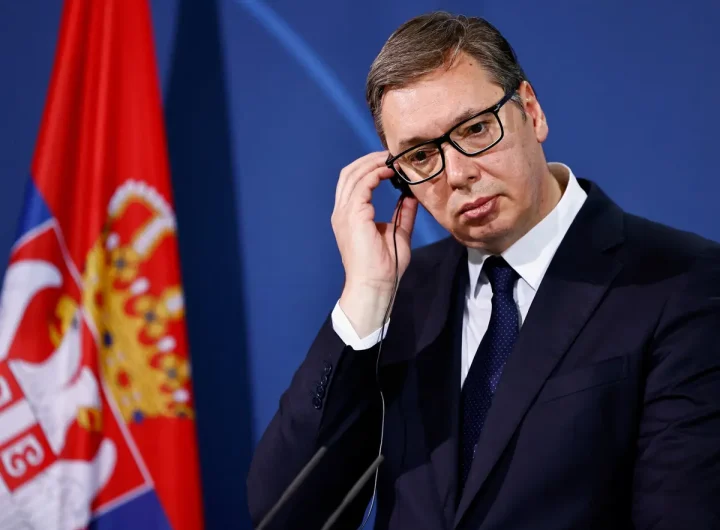
Foto: RFE/RL
Shaip Kamberi, the Albanian member of the Serbian parliament, announced on Wednesday that he had requested the establishment of a special parliamentary commission to investigate the deaths of Albanian soldiers in the former Yugoslav army in the 1980s.
Kamberi addressed this request to Serbian Parliament Speaker Ana Brnabić at a time when Serbia is preparing to reintroduce conscription in the country.
In his request, Kamberi emphasizes that there is concern in the Preševo Valley about the possible conscription of young Albanians into military service, “as the past and its consequences still shape the collective consciousness of Albanians.”
In a post on his Facebook account, Kamberi called for an investigation into the deaths of 135 Albanian soldiers in the ranks of the Yugoslav People’s Army (JNA) in the 1980s. “Many of these cases, which were recorded as ‘suicides,’ ‘accidents,‘ or ‘disciplinary violations,’ were considered suspicious by the victims’ families. They often reported signs of violence on the returned bodies,” Kamberi said.
He said that the lack of independent investigations and transparency regarding these murders had reinforced their conviction that they were ethnically and politically motivated, at a time when Albanians in the JNA were subjected to discrimination, stigmatization, and open hostility.
“This phenomenon has been concealed and not documented in public discourse in Serbia. This testifies to a serious lack of reconciliation with the past and institutional discrimination against Albanians,” he emphasized.
Kamberi stressed that if approved, the commission would also include representatives of civil society and the Albanian community.
The reintroduction of compulsory military service in Serbia
According to Kamberi, the reintroduction of compulsory military service is causing concern among Albanians in the Preševo Valley, as young Albanians who served in the JNA have had painful experiences of discriminatory treatment and tragedy in the past.
More than 60,000 Albanians live in Serbia, where they are the fourth-largest minority according to the latest census in 2022. Albanians in the Presevo Valley – the name given to the municipalities of Presevo, Medvedja, and Bujanovac with Albanian-majority populations in southern Serbia – repeatedly complain of discrimination.
In international reports, the Preševo Valley is considered completely isolated and only receives attention during election periods.
Serbian authorities began work on reinstating compulsory military service last year.
Last summer, the Serbian government announced that conscription, which was abolished on January 1, 2011, would be reintroduced in 2025.
This week, the Chief of Staff of the Serbian Army, Milan Mojsilović, said that the country had not given up on the return of conscription, but added that intensive preparations were underway.
According to him, significant funds have been invested in renovating barracks and purchasing equipment.
He added that the next step would be to “adapt the legal framework to our wishes, namely 75 days of military service,” and it appears that the Serbian parliament will pass a law on this issue./Rferl/

 Why does the Russian army’s brutal culture go unchecked?
Why does the Russian army’s brutal culture go unchecked?  Japanese divided on military response to China over Taiwan, Kyodo poll shows
Japanese divided on military response to China over Taiwan, Kyodo poll shows  Serbian media spread disinformation: Masked Albanians fired at members of the Serbian Army
Serbian media spread disinformation: Masked Albanians fired at members of the Serbian Army  How Britain’s Disposable Vape Ban Has Boosted Ukraine’s War Effort
How Britain’s Disposable Vape Ban Has Boosted Ukraine’s War Effort  Ukraine reaches gas-import deal with Greece, Zelenskyy says
Ukraine reaches gas-import deal with Greece, Zelenskyy says  Russia is blackmailing Vučić: Will you be brave enough to nationalize the Serbian Oil Industry?
Russia is blackmailing Vučić: Will you be brave enough to nationalize the Serbian Oil Industry?